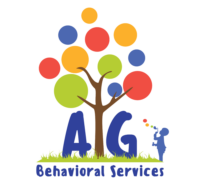Applied Behavior Analysis (ABA) therapy has a rich history of success in supporting children diagnosed with Autism Spectrum Disorder (ASD). For several decades, ABA has been a well-researched and proven approach aimed at enhancing targeted behaviors, including social skills, communication, and self-care, while simultaneously diminishing maladaptive behaviors that could hinder a child’s development. Recent years have witnessed a surge in studies affirming the effectiveness of ABA therapy in the context of autism. This article will delve into the most recent and notable discoveries within this field.
The Long-Term Benefits of Early ABA Therapy
A 2022 study featured in the Journal of Autism and Developmental Disorders
- Researchers delved into the enduring impact of early and intensive ABA therapy on children with autism. This study closely monitored 85 participants who commenced ABA therapy before reaching the age of four, and it continued for at least two years. The findings demonstrated that children who received early ABA therapy exhibited substantial enhancements in cognitive abilities, adaptive skills, and social functioning. What’s even more promising is that these benefits persisted even after the therapy concluded, highlighting the enduring positive effects of early ABA intervention.
ABA in Educational Environments
- A 2021 study, published in the Journal of Special Education, revealed the successful integration of ABA therapy within school settings. This research tracked the progress of 45 children with autism who received ABA therapy at school, comparing their advancement with that of a control group that did not receive ABA. The results were compelling, showing significant improvements in communication, socialization, and daily life skills among the children who underwent ABA therapy at school. This underscores the potential for incorporating ABA therapy into school curricula, potentially leading to substantial enhancements in the lives of children with autism.
ABA Therapy and the Role of Parental Engagement
- In 2021, a study in the Journal of Autism Research explored the influence of parental involvement in ABA therapy. This investigation found that when parents actively participated in the therapy process, their children experienced more pronounced improvements in social and communication skills. This underscores the pivotal role of family engagement in maximizing the effectiveness of ABA therapy.
Recent Posts
- How to Support Your Child’s ABA Goals Between Sessions: A Parent’s Playbook
- Navigating School & ABA Therapy: How to Get Them Working Together for Your Child
- Measuring Progress: What to Expect in Your Child’s First 6 Months of ABA Therapy
- Preparing Your Home for In-Home ABA Therapy: A Parent’s Guide
- A New Window into Autism: Yale Scientists Discover Molecular Differences in the Brain
ABA and the Reduction of Challenging Behaviors
A 2021 study, published in the Journal of Behavior Analysis in Practice, scrutinized the effectiveness of ABA therapy in mitigating challenging behaviors exhibited by children with autism. The research uncovered that ABA therapy yielded significant reductions in tantrums, aggression, and self-injury. This highlights the potential of ABA therapy in aiding children with autism to develop more adaptive behaviors and improve their overall quality of life.
In conclusion, contemporary research continues to endorse the effectiveness of ABA therapy for children with autism, substantiating its benefits across various facets of life. Early intervention with ABA therapy can result in long-lasting improvements in cognitive, social, and adaptive functioning. Furthermore, the integration of ABA therapy into educational settings and the active involvement of parents further amplify its positive impact. As research in this field advances, ABA therapy remains an indispensable tool in facilitating children with autism to achieve their full potential.
AGBS provides ongoing care for children, adolescents, and young adults with autism to improve the quality of their lives. If you would like learn more about how AGBS can help please contact us here , or call 908-913-0443.




